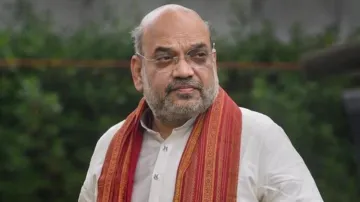Union Home Minister Amit Shah is set to grant Indian citizenship to 188 Pakistani Hindus in Gujarat's Ahmedabad on Sunday (August 18) under the newly implemented Citizenship Amendment Act (CAA). This marks the first instance of citizenship being conferred under the CAA, The event holds significant importance for those who have sought refuge in India, fleeing religious persecution in Pakistan. In Ahmedabad district, a total of 1,167 people have been granted Indian citizenship so far by the Gujarat government. Earlier this year, a ceremony was organised at the district collector's office, where citizenship certificates were handed over to 18 people who had migrated from Pakistan and are now residing in Ahmedabad.
Citizenship to first set of people
The first set of citizenship certificates under the Act was issued in May this year in Delhi to 14 people, nearly two months after rules under the contentious law were notified to grant Indian nationality to persecuted non-Muslim migrants from three neighbouring countries. Union Home Minister Shah had termed it a "historic day", saying the decades-long wait of those who faced religious persecution in Pakistan, Bangladesh and Afghanistan is over. While granting the citizenship certificates, the home secretary congratulated the 14 applicants and highlighted the salient features of the Citizenship (Amendment) Rules, 2024.
Govt's clarification on documents needed for citizenship
Earlier this month, the central government expanded the scope of the rules under the CAA, providing relief to persecuted minorities from Afghanistan, Bangladesh, and Pakistan who are seeking Indian nationality. The Union Home Ministry announced new guidelines allowing for greater flexibility in the documentation required to prove eligibility under the Act. Earlier, applicants were required to provide specific documents to establish their lineage and connection to India, which posed challenges for many.
About Citizenship (Amendment) Act
The CAA was enacted in December 2019 to grant Indian nationality to persecuted Hindu, Sikh, Jain, Buddhist, Parsi and Christian migrants from Afghanistan, Bangladesh and Pakistan who came to India on or before December 31, 2014. After the enactment, the CAA got the president's assent but the rules under which Indian citizenship would be granted were issued only on March 11 this year, after over a delay of four years. Since May, the government has been granting citizenship to those coming from the three countries under the CAA. The nod to the CAA in 2019 sparked protests in different parts of the country with agitators terming it "discriminatory". Over a hundred people lost their lives during the anti-CAA protests or police action in various parts of the country.
ALSO READ: 'Misplaced, misinformed, unwarranted': India reacts to US 'closely monitoring' implementation of CAA
